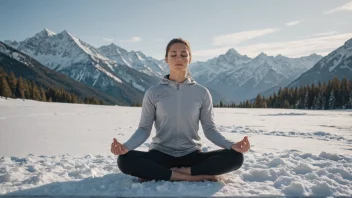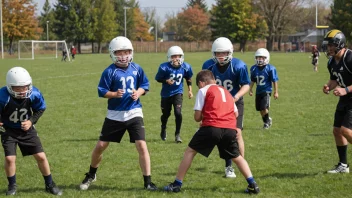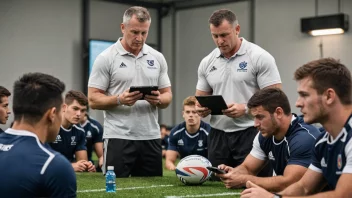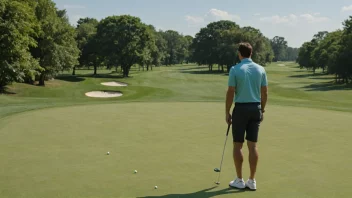Introduction
Winter sports can be exhilarating, pushing athletes to their limits in terms of physical performance and mental fortitude. In this article, you'll learn how sports psychology can significantly impact your performance in winter sports. We will guide you through understanding the key aspects of sports psychology, techniques to improve your mental game, and how to integrate these strategies into your training regimen.
Step 1: Understand the Importance of Mental Resilience
Mental resilience plays a crucial role in sports performance, especially in high-pressure environments like winter sports competitions. Athletes must be able to cope with the stress of competition, recover from setbacks, and maintain focus during challenging conditions.
- Build Awareness: Recognize the mental challenges you face in your sport.
- Reflect on Experiences: Consider past competitions and how your mental state affected your performance.
Step 2: Set Clear and Achievable Goals
Goal-setting is a powerful tool in sports psychology. Setting clear, achievable goals can give you focus and motivation throughout your training and competition.
- Short-term Goals: Set specific daily or weekly objectives, such as mastering a particular technique.
- Long-term Goals: Establish broader targets, like improving your ranking or achieving a personal best in the season.
- Track Progress: Keep a journal to monitor your progress toward these goals.
Step 3: Develop Visualization Techniques
Visualization involves creating a mental image of successful performance. This technique can help reduce anxiety and enhance your confidence.
- Find a Quiet Space: Choose a calm environment where you can concentrate without distractions.
- Close Your Eyes: Picture yourself in a specific competition scenario, performing each movement with precision.
- Engage Your Senses: Envision the sights, sounds, and feelings associated with your performance to make it more vivid.
Step 4: Practice Mindfulness and Relaxation Techniques
Mindfulness can help you stay present and focused, while relaxation techniques can reduce anxiety before competitions.
- Mindful Breathing: Practice deep breathing exercises to calm your mind and body.
- Progressive Muscle Relaxation: Tense and then relax each muscle group to release physical tension.
- Meditation: Dedicate a few minutes each day to meditate, focusing on your breath or a calming mantra.
Step 5: Build a Support Network
A strong support network is essential for mental well-being. Surround yourself with coaches, family, and fellow athletes who understand the psychological demands of winter sports.
- Communicate Openly: Share your thoughts and feelings with your support network to gain perspective.
- Seek Professional Help: Consider working with a sports psychologist for additional guidance and strategy development.
Step 6: Implement Mental Training in Your Routine
Integrating mental training techniques into your regular practice can lead to significant improvements in your performance.
- Include Mental Drills: Add visualization and mindfulness exercises to your training schedule.
- Reflect After Training: Take time to assess how your mental strategies affected your performance post-practice.
- Be Consistent: Make mental training as essential as physical training to see lasting benefits.
Conclusion
Enhancing performance in winter sports through sports psychology involves building mental resilience, setting achievable goals, utilizing visualization, practicing mindfulness, developing a support network, and implementing mental training into your routine. By following these steps, you can improve not only your athletic performance but also your overall experience in winter sports.






